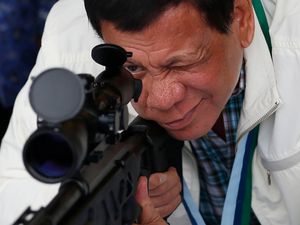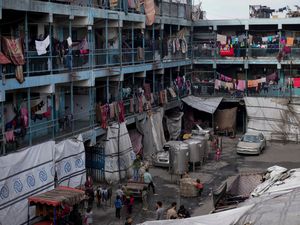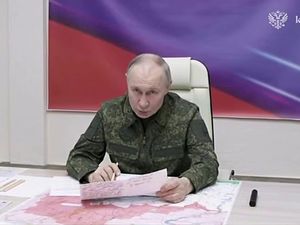Explosion leaves one person dead, at least 10 injured in Tel Aviv
The strike hit hours after Israel’s military confirmed one of its airstrikes had killed a Hezbollah commander and other militants in southern Lebanon.
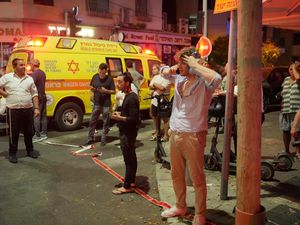
A large explosion tore through the streets of central Tel Aviv early on Friday morning, raining down shards of shrapnel and injuring at least 10 people.
Yemen’s Houthi rebels have claimed responsibility for the drone strike.
Israel’s emergency response service said those injured were being treated for their injuries, while a 50-year-old man was pronounced dead at the scene.
Local police in Tel Aviv said that the blast sounded at around 3:10 a.m. on Friday, reverberating to nearby cities and physically injuring at least 10 people.
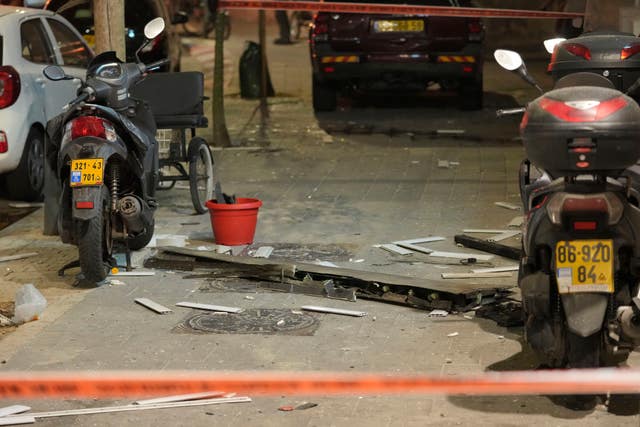
Tel Aviv District Commander Peretz Amar said officers could not locate the point of contact, suggesting the explosion occurred in the air.
“The force of the explosion caused damage that is not great but is spread over a large area. At the moment we don’t know what the object was,” Mr Amar said.
Israel’s military said they were reviewing the explosion and increasing air patrols after the incident which Tel Aviv Mayor Ron Huldai on X, formerly Twitter, called a drone strike.
It was not immediately clear how the strike evaded Israel’s air defences or how Israel might respond, but the strike did hit hours after Israel’s military confirmed an airstrikes had killed a Hezbollah commander and other militants in southern Lebanon.
Yahya Sare’e, the Houthis’ spokesperson, said in a statement on X that the strike was made in retaliation to the war in Gaza and had hit one of many of the group’s targets.
The Houthis claimed that their newest drones can bypass Israel’s aerial defence systems. However, a spokesperson for Israel’s military said on Friday that the explosive-laden drone had been identified on Thursday and attributed the hit to “human error”.
The military’s assessment of aerial threats has not changed because, the military said, Israel’s adversaries have attempted such strikes for months.
“It was a terror attack that was targeted to kill civilians in Israel,” the Israeli spokesperson said.
Yemen’s Houthis have repeatedly launched drones and missiles toward Israel throughout the nine-month-long war in sympathy with Hamas.
Until Friday, all were intercepted by either Israel or Western allies with forces stationed in the region.
The country has so far not made attacks on the Houthis, allowing its allies instead to take the lead as it focuses its efforts on the war in Gaza and ongoing fighting with Lebanon’s Hezbollah militant group.
The attack on Tel Aviv comes as international mediators continue to hold out hope for a ceasefire agreement, pushing Israel and Hamas toward a phased deal that would halt fighting and free about 120 hostages held by the militant group in Gaza.
Like Hamas, Hezbollah and the Houthis are backed by Israel’s arch enemy, Iran. Israel for the most part also has avoided a direct confrontation with Iran throughout the war.
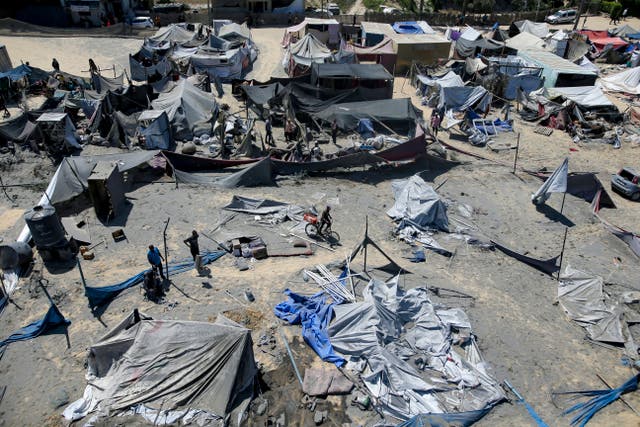
Iran launched hundreds of drones and missiles at Israel during a single incident in April in response to Israel’s alleged assassination of a pair of Iranian generals in Syria at the time.
The war in Gaza, which was sparked by Hamas’ October 7 attack on southern Israel, has killed more than 38,600 people, according to the territory’s Health Ministry.
The war has created a humanitarian catastrophe in the coastal Palestinian territory, displaced most of its 2.3 million population and triggered widespread hunger.
Hamas’ October attack killed 1,200 people, mostly civilians, and militants took about 250 hostage. About 120 remain in captivity, with about a third of them believed to be dead, according to Israeli authorities.
Hezbollah said it fired a volley of rockets on a northern Israeli village on Friday morning in retaliation for Israeli airstrikes the night before on south Lebanon that killed several Hezbollah members and wounded civilians.
In another attack, the group also said that it used for the first time a new rocket with heavy warhead to strike an Israeli army post in the disputed Kfar Chouba hills.
Hezbollah said in a statement that the Wabel rocket, produced by the group in Lebanon, destroyed parts of the Rweisat al-Alam post and caused a fire inside it.
Hezbollah said its fighters fired a salvo of rockets on the northern Israeli village of Abirim for the first time since fighting along the Lebanon-Israel border began in early October.
Militant Palestinian groups Hamas and Islamic Jihad called on the leadership of the Palestine Liberation Organisation to withdraw its recognition of Israel in retaliation for a resolution approved by Israel’s parliament rejecting the establishment of a Palestinian state.
The two groups made the announcement late on Thursday following a meeting in Qatar between Hamas leader Ismail Haniyeh and Islamic Jihad chief Ziad Nakhaleh and his deputy Mohammed al-Hindi, according to a Hamas statement.
The two groups said the Palestinian people have the right to set up their own independent state with Jerusalem as its capital.
Two Israeli strikes on central Gaza killed 12 people overnight into Friday, according to Associated Press journalists and Palestinian medical officials.
Seven of the dead, including two women and three children, were killed in an airstrike on the Nuseirat refugee camp in central Gaza late on Thursday evening, while the second airstrike hit Bureij refugee camp, also in central Gaza, killing five people early on Friday, ambulance crews said.
The bodies were taken to al-Aqsa Martyrs hospital, in the nearby city of Deir al-Balah, where they were counted by AP journalists.


